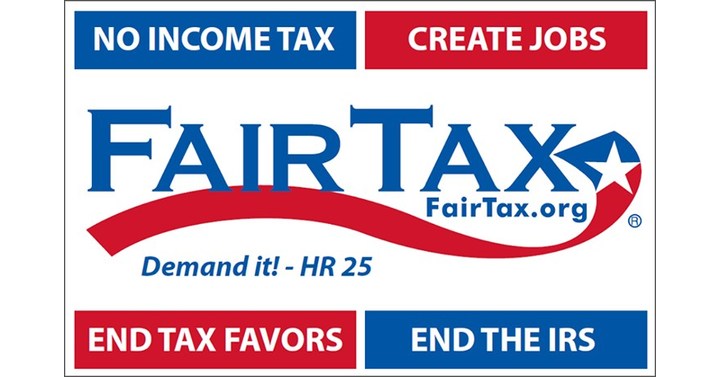The Fair Tax Act
Florida FAIRtax Educational Asso
Simple-Visible-Efficient tax reform
March 1, 2023
The heated debate over the Republican-proposed Fair Tax Act of 2023 still stands. The bill was introduced in Early January of 2023. This bill is urging a national sales tax on the use or consumption in the United States of taxable property or services in place of the current income taxes, payroll taxes, and estate and gift taxes. In simpler terms, one would have more take-home pay from your work’s salary as the percentage of the tax would be removed entirely. The rate of the sales tax will be 23% in 2025, with adjustments to the rate in subsequent years.
Though I know this sounds confusing, let me break it down for you in the most simple way. Basically, according to the Finance Department of the Senate,” The FairTax allows Americans to keep 100 percent of their paychecks (minus any state income taxes), ends corporate taxes and compliance costs hidden in the retail cost of goods and services, and fully funds the federal government while fulfilling the promise of Social Security and Medicare.” In this article, the pros and cons of this act will be broken down and explained so that you’ll leave this article knowing some more facts about the economy and how citizens of the U.S. could benefit or face the consequences of certain aspects of acts and bills.
Reminder: The economy of the United States of America is far from perfect, and though some disadvantages of economic policies may seem detrimental, it’s essential to take into account the long-term advantages and vice-versa.
ADVANTAGES:
- Eliminates annual tax preparation the headache and associated costs:
Simply, there is the elimination of yearly income tax headaches and the dreaded cost of income tax preparers. Tax preparers are the people that calculate your tax payments, estimate the information, and file your taxes. - Elimination of the IRS:
Government spending would be reduced by eliminating the IRS. The act would “turn most tax administration responsibilities over to the states.” - Boosts income and possibly consumer spending:
Increased consumer spending would lead to an increase in gross domestic product, employment, productivity, and an increase in hourly wages.DISADVANTAGES:
- Penalizing the lower and middle classes:
- Billed as a progressive tax meaning that the wealthy pay more and the poor/middle class pay less as a percentage of income.
- Only true if individuals spend 100% of their income on taxable expenditures.
- Very high-income taxpayers end up saving a significantly larger percentage of their income than low and middle-income taxpayers.
- Would end up being regressive meaning those with less money end up paying a higher percentage of their income in taxes.
- Depends too much on spending:
- Fair Tax is dependent on spending.
- Wealthy individuals are already able to invest their own money in their own businesses and others.
- National burden shifts to lower economic classes.
- Increasing cost for immigrants:
- Prebate (prepaid monthly rebate) checks of the FairTax progression ensure no American pays tax on necessities.
- Only goes to U.S. citizens.
- Significantly raises the cost of living for lower-income immigrants and families, permanent residents, and visa holders.
At the end of the day, the Fair Tax has its pros and cons. The extent to which the advantages and disadvantages affect people vary depending on their economic situation. The act is gaining traction around the country. Many people oppose it while others strongly support it. Again, it all comes down to what will benefit the national economy the most, but you can’t always please everyone, so it’s up to how great our country would flourish or suffer.
